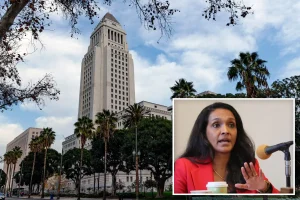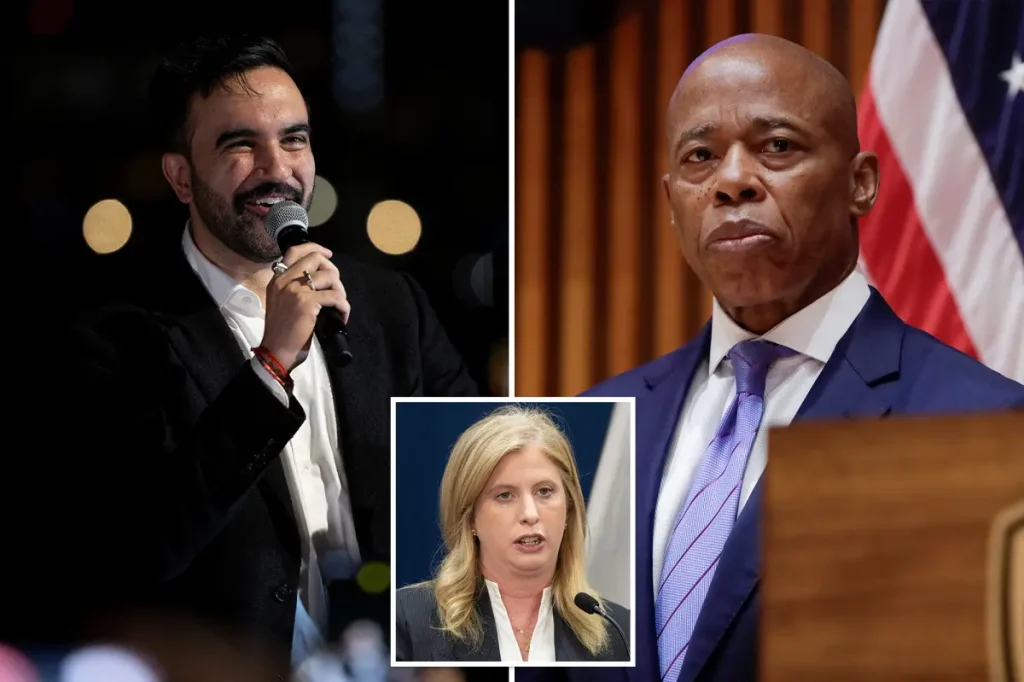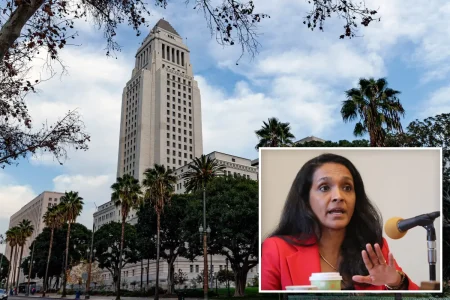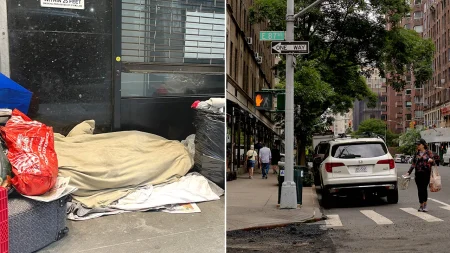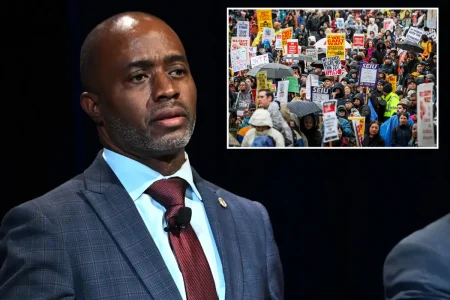A Smooth Mayoral Transition in New York City: Adams to Mamdani
In San Juan, Puerto Rico, the political landscape of New York City is shifting as mayor-elect Zohran Mamdani begins the transition process with outgoing Mayor Eric Adams. The two leaders have already engaged in initial conversations about the handover of power, with Adams pledging to “fully cooperate” with Mamdani’s transition team during the less than two months remaining before the socialist candidate assumes office. This early communication signals a professional approach to governance despite their significant ideological differences. The transition period is crucial for maintaining continuity in city services and ensuring that New Yorkers experience minimal disruption as leadership changes hands. Adams has publicly suggested that “if he’s smart,” Mamdani would retain some key members of the current administration, highlighting the importance of experienced leadership in managing America’s largest city.
Central to the transition discussions is the future of well-regarded NYPD Commissioner Jessica Tisch, whose potential retention has become a balancing act for the incoming administration. Mamdani’s campaign promise to keep Tisch helped reassure moderate voters concerned about public safety under a self-described democratic socialist who once criticized the NYPD as “racist” on social media. However, as of his statements at the SOMOS political retreat in Puerto Rico, Mamdani confirmed he had not yet scheduled a formal meeting with Commissioner Tisch, noting that his immediate focus was on meetings planned “for the next few days.” This pending conversation has become symbolic of the broader ideological tensions at play as Mamdani attempts to bridge his progressive base with governance pragmatism. The retention decision carries significant political weight as Mamdani navigates between appeasing his left-wing supporters and addressing citywide concerns about crime and safety.
The delicate balance Mamdani must strike became evident when controversy emerged around Commissioner Tisch’s actions related to Immigration and Customs Enforcement (ICE) operations. According to reporting by the New York Daily News, Tisch had received advance notice from the Trump administration about controversial ICE arrests along Canal Street in late October. When questioned about this, Mamdani emphasized his belief in maintaining “a separation between NYPD and ICE,” while criticizing outgoing Mayor Adams for allegedly opening “the door to civil immigration enforcement” during national television appearances. This exchange highlights the policy divergence between the outgoing and incoming administrations on immigration enforcement, with Mamdani signaling a potential shift in how the city’s police department interacts with federal immigration authorities while still considering keeping Tisch in her role.
The commissioner question extends beyond just Mamdani’s personal preference, as influential Democratic leaders have weighed in on the decision. Governor Kathy Hochul, who endorsed Mamdani during the campaign, has indicated she expects to have input on his City Hall appointments. Similarly, House Majority Speaker Hakeem Jeffries has reportedly advocated for Tisch’s retention as the progressive mayor-elect sought their political backing. These interventions from state and national Democratic figures underscore the broader party dynamics at play in what would typically be a mayoral prerogative. For her part, Commissioner Tisch has maintained public silence about whether she would accept an offer to remain in her position under an administration whose policy priorities may differ substantially from those of Mayor Adams, who appointed her.
The transition conversations between Adams and Mamdani represent more than just administrative handover; they symbolize a significant ideological shift in New York City governance. Adams, a former police captain who ran on a moderate, public safety-focused platform, is passing leadership to Mamdani, a member of the Democratic Socialists of America with a history of progressive activism. This pendulum swing in city leadership reflects the ongoing tensions within Democratic politics between centrist and progressive factions. Despite these differences, both leaders appear committed to an orderly transition process that prioritizes governmental stability. Adams’ suggestion that Mamdani should retain experienced staff members like the police commissioner, transportation commissioner, and others indicates his concern for continuity in critical city services regardless of political differences.
The transition period ahead will be closely watched not only by New Yorkers but by political observers nationwide, as it represents a test case for how progressive governance might function in America’s largest city. Mamdani’s early decisions, particularly regarding key appointments like Commissioner Tisch, will signal how he intends to balance his progressive values with practical governance requirements. The pressure from established Democratic figures like Governor Hochul and Representative Jeffries suggests the party establishment is concerned about maintaining stability and moderate policies in crime prevention and public safety. Meanwhile, Mamdani must consider his core supporters who may view retaining Adams appointees as compromising on progressive principles. As the January inauguration approaches, these transition conversations will shape not just the composition of the incoming administration but also its governing philosophy and relationship with various constituencies across New York’s diverse political landscape.


